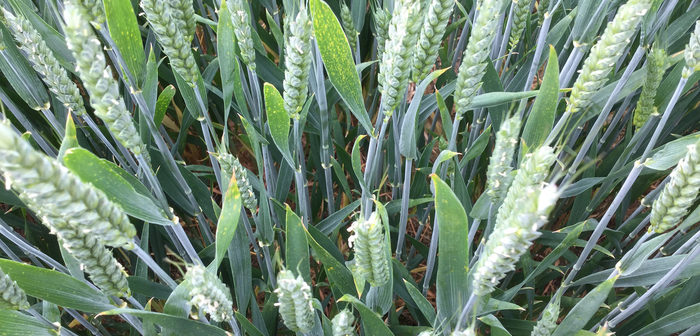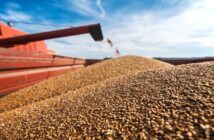A new, high-yielding winter feed wheat variety that could help growers respond to a number of current agronomic challenges, while being adaptable to a range of farm situations, is being launched for planting this autumn.
New hard Group four winter wheat, Gleam, from Syngenta, continues the company’s track record of bringing varieties to growers that not only offer good Septoria triticiresistance but also produce barn-filling yields without being late to mature, says Syngenta’s seeds marketing manager, Tracy Creasy.
“With an output of 105% of control varieties – equivalent to 11.55 t/ha – Gleam has the second highest UK treated yield figure on the 2018/19 AHDB Recommended List,” says Mrs Creasy.
“It has also produced high yields consistently over the last three seasons, and performs exceptionally well in the East. But what sets Gleam apart is that it combines its high yields with characteristics that make it easy to manage.
“With its strong Septoria tritici resistance on the AHDB Recommended List of 6.2, Gleam makes an ideal choice for growers wanting high yield potential plus the reassurance of resilience if fungicide spray timings become compromised. Gleam has one the highest untreated yields available on the AHDB Recommended List,” she points out, “equal to the popular variety, Graham.”
Additionally, Gleam’s combination of relatively early maturity plus stiff straw makes it a useful choice to ease time pressures at harvest, says Mrs Creasy.
This, combined with its flexible drilling window from the first week of September to late November, due to high tillering capacity and tiller maintenance, can be useful in black-grass situations, she adds, by allowing longer windows for stale seedbeds.
“In addition, with the prospect of having to delay winter wheat drilling until after peak aphid activity in autumn, as a way of managing barley yellow dwarf virus risk without neonicontinoid seed treatment chemistry, drilling date flexibility is a useful option to have.
“Gleam is an incredibly versatile variety. It is well-adapted to all regions; as well as to different rotational positions, since it has yielded well as a first or second wheat; and is suitable for both heavy and light soils. It also has orange wheat blossom midge resistance, which gives added security in a year such as this.
“Overall, Gleam is an ideal variety for growers wanting an easy-to-manage, barn-filling feed wheat with a flexible drilling window. There has been a lot of interest in it already,” Mrs Creasy points out.




